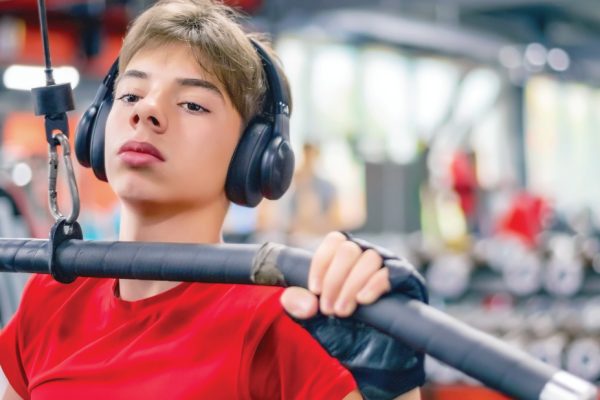
When it’s time to transition to the workplace
There are milestone moments in the lives of all our children – and leaving school to transition into the workplace ranks up there with one of biggest and scariest – for all involved! For most families, despite the magnitude of the transition, things generally have a way of working out and children fly the nest, going off to make their way in the big wide world (some a little later than others it has to be said).
When your child has special needs, however, things are not quite so simple. The structures that are in place to support our children as they make their way through childhood all shift and there are a whole new set of acronyms, support services, processes and procedures to get to know. Before you dissolve into complete panic at the thought of it all, it’s important to know however that there ARE supports out there – you, and your young adult child, will not have to ‘go it alone’ – the NDIS for example is a lifelong support system and there are other initiatives in place specifically to aid young people with a disability as they strike out to join the workforce. Here are some things to know and things to consider:
Start early
It is a good idea to start thinking about and planning for life after school before the last year. Engage with the school guidance or careers team as early as you can. Ensure you contact the school and keep up to date with employment and transition events, options and planning. Work as a group to build a plan that is tailored to your child and then begin accessing supports to achieve this when it is practical. This process could start as early as year 7, to ensure study planning aligns with career or further study goals. The NDIA has a really useful booklet on their website called Let’s Talk About Work which covers planning for employment, exploring employment goals, planning for leaving school and finding employment providers.
Tertiary Education
Studying after school is a real option for many young people with disabilities – and extra skills will open up potential employment avenues. Universities offer a wide range of assistance including support with note taking, assistive technology, alternative print formats and participation assistance. Other options include TAFE diplomas and certificates.
School Leaver Employment Support
This is the specific part of the NDIS set up to support young adults as they transition from school into the workplace. According to the NDIA – “the NDIS is responsible for funding supports to assist people with disability to prepare for, and take part in work, where the person has work capacity but needs some more support before receiving ongoing employment support through existing systems.”
The supports help participants move from school to work and are available in the final years of school and directly after leaving school (usually up to the age of 22).
Funding is made available through the capacity building category in an NDIS plan – it can be used with providers who deliver school leaver employment supports that help young people prepare, look for and gain employment focusing on capacity building, developing skills, independence and confidence to work. Some of the skills development a young person might engage a service provider for may include money management, time management, communication skills, work experience, job ready skills, travel skills and more.
Disability Employment Services (DES)
A School Leaver Employment Service (SLES) provider will work with a participant to help them meet the access criteria for Disability Employment Services (DES) and will work with them to transition into using the service of a DES provider. The role of a DES provider is to support a person with disability who is job ready to find and keep a job.
DES providers are a mix of large, medium and small, for-profit and not-for- profit organisations that are experienced in supporting people with disability as well as providing assistance to employers to put in place practices that support the employee in the workplace.
There are an increasing number of service providers to choose from. The NDIA has some useful suggestions for questions to ask when you’re making your choice of who to work with in its Looking for Work booklet:
- What supports would you recommend based on the employment skills I need to develop?
- Do you provide one-on-one or group support?
- What qualifications do your staff have?
- What types of businesses or companies have you placed people in and what type of jobs are they doing?
- What range of jobs do you offer, and would I have the opportunity to learn new skills while I work for you?
- How many of your participants have gone on to get a job?
- How long do most of your participants stay in a job for?
To find a list of Disability Employment Service providers in your area, visit the jobactive website at jobsearch.gov.au.
Job Access
Created by the government, this is a national hub for information on employment and workplace questions for people with a disability and employers. The website has a range of information such as:
• Financial support for workplace modifications and wage subsidies
• Links to education and training programmes
• Recruitment tips for applying for a job
• Info on rights and responsibilities of both employees and employers
The Job Access website is jobaccess.gov.au or call 1800 464 800
Australian Disability Enterprises (ADEs)
ADEs provide another pathway into employment for people with a disability. An ADE is a not-for-profit organisation, which supports people with disability to engage
in a wide variety of work tasks such as packaging, assembly, production, recycling, screen printing, plant nursery, garden maintenance and landscaping, cleaning services, laundry services and food services. ADEs also offer similar working conditions as other employers and an opportunity for people with a disability to contribute and connect to their local community.
Volunteering
Unpaid volunteering work can be a route into a paid position where a person with a disability can increase work skills in a less formal setting. It’s also a great way of trying out a few different fields and also can help build personal and work relationships.
Life skills programs
If your child is unable to participate in the workforce, they may want some real satisfaction, enjoyment and community in a program that will help to guide them towards being more self- sufficient and give purpose to their days. As with everything, you are going to need to do your research to and one that is a good fit.






